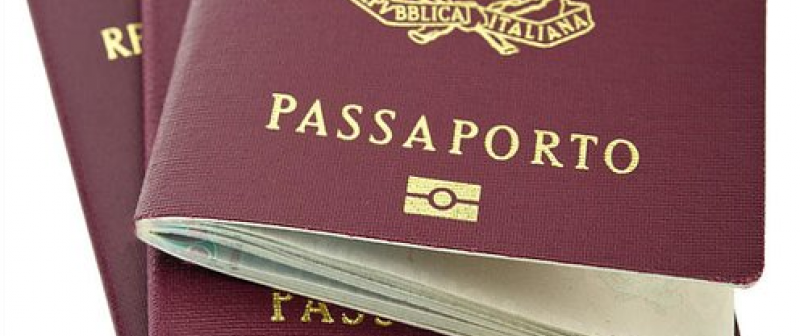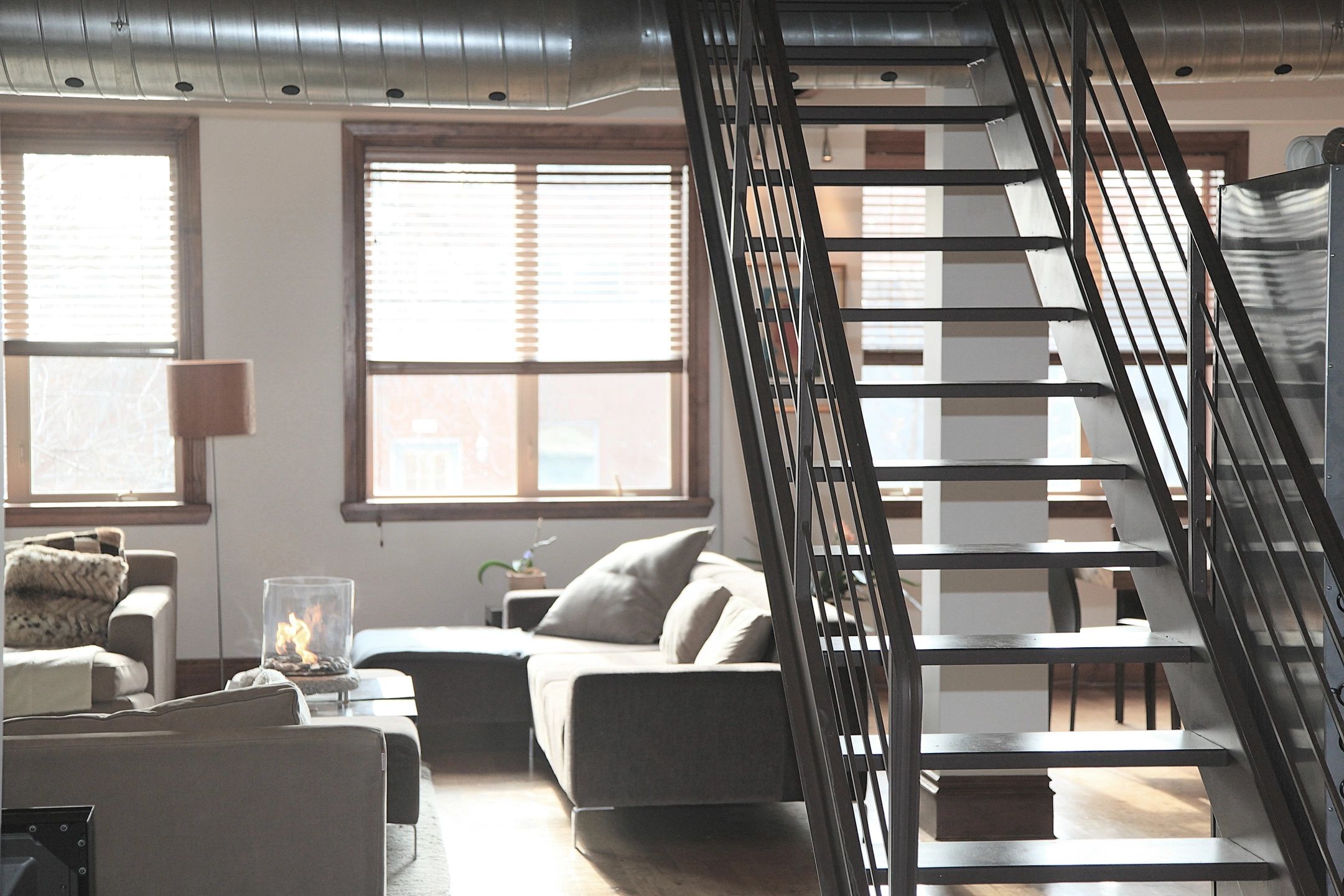Explore All the Exciting Things to Do in Rome and Italy this May, from the well-known attractions to hidden gems!
Welcome, expats living in Rome and Italy! You’ve made a fantastic decision to call this beautiful country home. We’ve compiled a list of the best things to do and the events happening in May to help you immerse yourself in the local culture. And, for those who are new to public transport in Italy, we’ve got you covered with some handy tips to make your travels stress-free.

May 1st: May Day Celebrations in Rome
May 1st is a national holiday known as International Workers’ Day, or May Day, which is widely celebrated across most European countries, similar to Labor Day.
Romans particularly enjoy this day as an opportunity to spend time outdoors, indulging in picnics or leisurely lunches with friends and family.
Here’s a list of what’s closed and open on May 1, 2023, in Rome:
Closed on May 1, 2023:
– Vatican Museums and Sistine Chapel
– Capitoline Museums
– Castel Sant’Angelo
– Ostia Antica
Open on May 1, 2023:
– Colosseum, Roman Forum, and Palatine Hill
– Galleria Borghese
– Saint Peter’s Basilica (as well as other churches)
– Galleria Doria Pamphilj
– The Pantheon
Tip: Take advantage of the holiday to explore Rome’s iconic sites and immerse yourself in the city’s vibrant atmosphere.
Primo Maggio Concert: A Celebration of Music in Rome
Start your May adventure with the annual Primo Maggio Concert held in Piazza San Giovanni. This free, open-air event features a diverse lineup of Italian and international artists. It’s an ideal opportunity to socialize with locals, dance the night away, and immerse yourself in Rome’s vibrant music scene.

Rome’s Secret Gardens: The Perfect Escape
Tired of the tourist crowds? Venture off the beaten path and discover Rome’s hidden parks. Villa Doria Pamphili, Villa Ada, and Parco degli Acquedotti offer serene settings for a relaxing picnic or leisurely stroll, allowing you to recharge amidst lush greenery.

Rome’s Blooming Roseto Rose Garden on Aventine Hill
The picturesque Roseto Rose Garden, nestled on the Aventine Hill in Rome, opens its gates to the public from April 21st through early June. In recent years, the garden has also been reopening for a couple of weeks in mid-October.
However, May is the ideal time to visit, as the roses reach their peak beauty, showcasing their magnificent full blooms. Not only is entry to the Roseto Rose Garden free of charge, but it also tends to be relatively uncrowded, making it the perfect serene escape amidst the bustling city.

Open House Roma
Hundreds of palaces, palazzos, ruins, and monuments in and around Rome are free to explore in May.
The dates for Open House Roma in 2023 are May 20-28.
Visit a variety of homes ranging from modern to old. The site is only in Italian, but you can view photographs of the numerous spots you may visit, and if you click on any of them, a map of their location will appear.
The Street Art Scene in Rome: A Visual Feast
Rome’s thriving street art scene adds a modern touch to the ancient city. Explore neighborhoods like Ostiense, Pigneto, and Tor Marancia to uncover striking murals, thought-provoking installations, and captivating graffiti. It’s a unique way to experience Rome’s contemporary culture.
Food Festivals: A Culinary Adventure
Food lovers, this one’s for you! May is the perfect time to indulge in Rome’s food festivals. Sample traditional Roman dishes at the Cacio e Pepe Festival or treat your taste buds to artisanal gelato at the Gelato Festival. These events provide a wonderful opportunity to savor Italy’s culinary delights and mingle with locals.
Night of the Museums: History Comes Alive
Witness Rome’s rich history in a new light during the Night of the Museums. This exclusive event allows you to explore Rome’s museums and cultural sites after dark, with many locations hosting special activities and performances. It’s a magical experience that shouldn’t be missed.
Check this list of participating museums: Capitoline Museums, Centrale Montemartini, Mercati di Traiano – Museo dei Fori Imperiali, Museo dell’Ara Pacis, Museo di Roma, Museo Napoleonico, Museo di Roma in Trastevere, Museo Pietro Canonica a Villa Borghese, Musei di Villa Torlonia (Casina delle Civette, Casino Nobile, Serra Moresca), Museo delle Mura, Museo Carlo Bilotti – Aranciera di Villa Borghese, Museo di Scultura Antica Giovanni Barracco, Museo Civico di Zoologia, Museo della Repubblica Romana e della memoria garibaldina, Galleria d’Arte Moderna, Museo di Casal de’ Pazzi and more.
There will be a lot of concerts and special performances and events happening in Rome too!
For the full list of the participating museums and sites, check out museiincomuneroma.it
Assisi’s Calendimaggio Festival: A Medieval Journey
Just a couple of hours away from Rome, the enchanting town of Assisi hosts the Calendimaggio Festival. This lively event celebrates the town’s medieval heritage with colorful parades, captivating theatrical performances, and traditional music. It’s a unique opportunity to step back in time and experience Italy’s rich history.

Giro d’Italia: A Thrilling Cycling Race
Witness one of the world’s most famous cycling races, Giro d’Italia, as it winds its way through Italy’s breathtaking countryside. Join locals in cheering on the cyclists and soak up the electric atmosphere. Check out the official website to get all the information and plan for your adventure!
The International Kite Festival in Cervia: A Sky Full of Colors
For a family-friendly day trip, head to the coastal town of Cervia for the International Kite Festival. This vibrant event showcases stunning kites from around the world, alongside flying displays and kite-making workshops. It’s a fun and unforgettable experience for all ages. Check the website for more information!
The Open Cellars Event: A Toast to Italy’s Wine Culture
On the last weekend of May, wineries across Italy open their doors to the public for the Open Cellars event. Embark on a scenic road trip through the country’s picturesque vineyards, sample exquisite wines, and learn about the winemaking process. This event is perfect for wine enthusiasts and those looking to explore Italy’s countryside.
Tips for Expats and Tourists Visiting Italy in May
Dress for the Weather and Cultural Norms
May in Italy brings pleasant temperatures and the beginning of the summer season. Pack lightweight, breathable clothing and comfortable walking shoes for daytime explorations. However, it’s essential to respect cultural norms, especially when visiting religious sites. Ensure you have a shawl, scarf, or a light jacket to cover your shoulders and wear modest clothing that covers your knees when entering churches or other sacred places. Don’t forget to pack a light rain jacket or umbrella, as May can occasionally bring showers.
Familiarize yourself with the local and regional transport system
To understand the schedule and routes for buses, trams, and trains in Italy can be tricky at first. Check out every city public transport website beforehand!
For example: Rome’s ATAC website and app provide valuable information on routes, schedules, and ticketing. You can purchase a Roma Pass or Integrated Time Ticket (B.I.T.) for unlimited access to Rome’s public transport network. These passes can save you money and make traveling more convenient.
When using trains to travel across Italy, consider purchasing a Trenitalia or Italo pass, depending on your route and travel frequency. Both companies offer a variety of ticket options to suit your needs.
Google Maps and Moovit are great apps to help you navigate public transport in Rome and other Italian cities. They provide real-time updates, route planning, and estimated travel times.
Keep in mind that some public transport services may have limited schedules during May holidays and local festivals. Always check timetables in advance to avoid delays.
Learn Basic Italian Phrases and Local Customs
While many Italians speak English, learning some basic Italian phrases will make your interactions with locals more enjoyable and help you navigate public transportation and restaurants more easily. Simple phrases like “Buongiorno” (good morning), “Grazie” (thank you), and “Dov’è il bagno?” (where is the bathroom?) can go a long way. Also, familiarize yourself with Italian customs, such as greetings, dining etiquette, and tipping practices, to ensure a smooth and culturally respectful experience.
We can help you with a free Italian lesson to get you ready for your next adventure in Italy!
In conclusion, Rome and Italy offer a wealth of exciting events, hidden gems, and unforgettable experiences for expats in May. With our comprehensive guide and public transport tips, you’ll be well-equipped to make the most of your time in this captivating country. Embrace your new home, and happy exploring!
Don’t miss out on our latest updates and legal advice for expats in Italy. Check out our Social Media accounts and Newsletter so you can join us in the next Social Meet-ups for Expats!

Understanding Salaries in Italy: A Guide for Expats and Newcomers (2025)
If you’re an expat living in Italy or someone considering relocating, understanding the salary landscape remains a crucial element in planning your life in the country. This article provides an overview of average salaries in Italy, how they vary by profession, age, gender, education, and region, as well as how they compare to other European […]
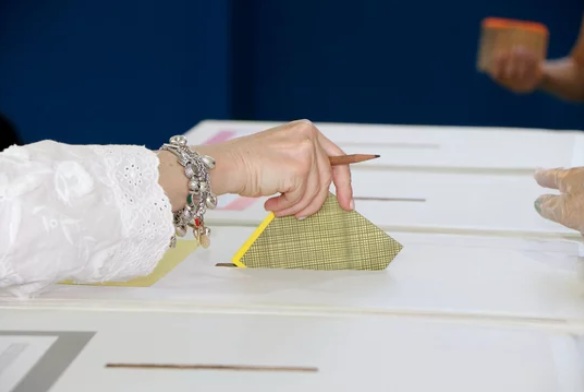
Voters to Decide on June 8–9: Shorter Citizenship Wait and New Labor Protections
On Sunday, June 8, and Monday, June 9, 2025, Italian citizens eligible to vote will be called to the polls for a major referendum on five key issues affecting labor rights and citizenship. These abrogative referendums (under Article 75 of the Italian Constitution) allow voters to decide whether to repeal existing laws or specific legal […]
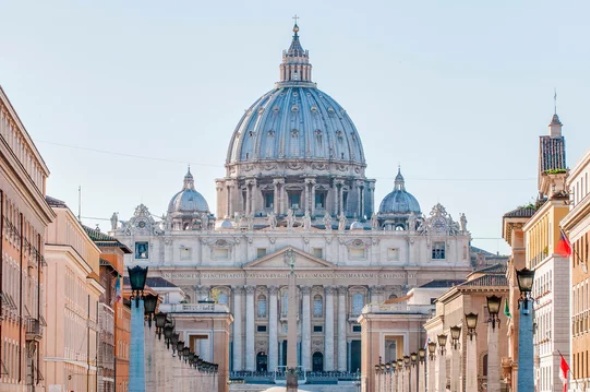
Conclave to Elect New Pope to Begin on May 7th
Following the passing of Pope Francis, a historic moment is once again unfolding in the heart of Rome. The Conclave to elect the 267th Pope will officially begin on May 7th, 2025, marking a major event in both the Catholic Church and Italian history. For expats living in Italy, understanding the significance of this process […]
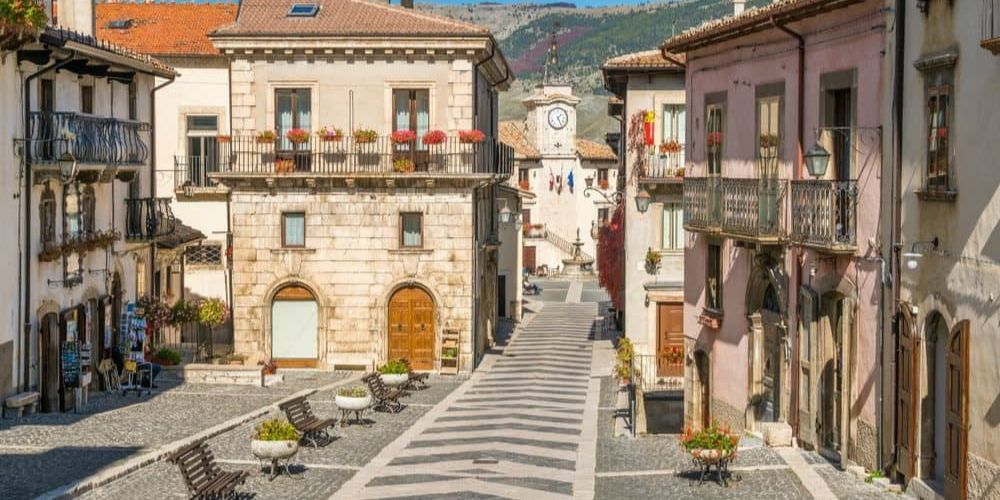
Living in Abruzzo, Italy: Retirement, Lifestyle, and Cost of Living (2025 Guide)
Why Choose Abruzzo? Abruzzo, located in central Italy between the Adriatic Sea and the Apennine Mountains, is a dream destination for those looking to retire or relocate for a more relaxed and affordable lifestyle. Known for its stunning landscapes, charming medieval villages, national parks, and friendly locals, Abruzzo offers an authentic Italian experience—without the crowds […]

A Guide to Getting Married in Italy to an Italian (2025 Edition)
If you’re a foreigner planning to marry an Italian in Italy in 2025, there are important legal steps to follow. This guide walks you through the process: Legal Requirements • Both partners must be at least 18 years old • Neither partner can be currently married • Divorce or death certificates must be provided if previously married Documents […]
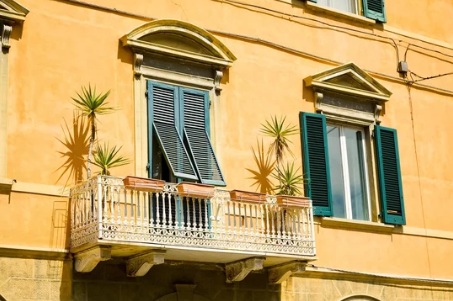
How to find an apartment in Rome: the ultimate expat guide
Guest Article written by helpmaterome.com Finding an apartment to rent in Rome is HARD. Demand for rentals is sky-high, so that little place you had your eye on last week has probably already gone by the time you pick up the phone to ask about it. You need to move quickly at all stages: calling, […]

Italy Observes Duelo: The Papal Demise and Transition
Italy has entered a period of official mourning, or duelo, following the passing of His Holiness Pope Francis I on April 21, 2025. For foreign residents within the capital, the customs and procedures associated with a papal demise and subsequent election may present unfamiliar traditions. This article endeavors to illuminate the role of the papacy, […]

Easter in Italy 2025: What to See, Eat, and Celebrate
Whether you’re religious or not, Easter is a great opportunity to visit Italy or acquire an Italian mindset. The weather is pleasant, and there are numerous intriguing customs to observe, ranging from sprinting monks and massive sculptures to colorful processions and larger-than-life reenactments. The Papal Mass and Urbi et Orbi Blessing in Vatican City The […]
Coronavirus: a new decree signed overnight by the Prime Minister Giuseppe Conte and published in the Official Journal contains more stringent measures to contain the spread of the virus in Lombardy and in 14 other provinces where the number of infections are greater.
A series of other measures are valid throughout the national territory. Compared to the initial draft, which began to circulate yesterday evening, there are 14 provinces and not 11 provinces, in addition to Lombardy, affected by more rigorous measures to contain the infection. These provinces are Modena, Parma, Piacenza, Reggio Emilia, Rimini, Pesaro e Urbino, Alessandria, Asti, Novara, Verbano Cusio Ossola, Vercelli, Padova, Treviso and Venezia. The measures stated in the decree are valid from today, March 8, until April 3.

RED ZONE MEASURES (Article 1 of the decree of 8 March 2020)
It is forbidden to enter and exit
Travel in and out of Lombardy and the 14 provinces stated above is prohibited. One can only move for emergencies or “proven” work needs, which must however be authorized by the prefect. Absolute ban on mobility for those who have been in quarantine.
Schools closed until April 3 – The teaching activity for schools of all levels, universities and academies is suspended until April 3.
Bars and restaurants open from 6 to 18 – The decree states an opening hours allowed for restaurant and bar services, from 6 to 18, provided that a place is able to comply with the “obligation” to ensure the interpersonal safety distance of 1 meter in the premises, with the sanction of suspension of the activity in case of violation. The suspension of exams for a driving license is also ordered.
Closed gyms and swimming pools. Derogation for games behind closed doors
The decree also establishes the closure in Lombardy and in the 14 provinces mentioned above of all gyms, swimming pools, spas and wellness centers. Outdoor sports competitions are allowed only behind closed doors (no fans). Shopping centers will have to be closed but only on the weekend. Other commercial activities, other than catering, may remain open on condition that they are able to guarantee a distance of one meter between customers. Instead, museums, cultural centers and ski resorts are closed. Contests are also suspended.
No weddings or funerals. Cinemas and theaters are closed
Civil and religious ceremonies, including funeral ceremonies, are suspended. All organized events are also suspended, as well as events in public or private places, including those of a cultural, recreational, sporting and religious nature, even if held in closed places but open to the public, such as large events, cinemas, theaters, pubs, schools dance halls, game rooms, betting rooms and bingo halls, discos and similar places.
Holidays
Whenever possible, employers are advised to encourage the use of ordinary leave or holidays by their employees.
VALID MEASURES IN THE REST OF ITALY (Articles 2 and 3 of the decree of 8 March 2020)
Schools are closed until March 15th
The teaching activity for schools of all levels and universities remains suspended until March 15th. Educational trips and school trips are suspended until April 3.
Cinemas, theaters and museums are closed
Throughout the whole national territory, the suspension of cinematographic, theatre events and events and shows of any nature “carried out in every place, both public and private”. Opening of museums is suspended. The Municipality of Rome announces that it has ordered the closure of all museums, theatres and all places and institutes of culture.
Closed pubs, discos and bingo
Pubs, dance schools, game rooms, betting rooms and bingo halls, discos and similar clubs are suspended.
Bars and restaurants, gyms and swimming pools are open but with an obligation to keep distance of 1 meter between customers.
The managers of catering businesses can continue to keep the premises open, provided that they guarantee the interpersonal safety distance of at least one meter. Same goes for gyms and swimming pools, which can remain open as long as the visitors are guarantee safety distance from each other.
Limit travel
Among the preventive measures, art. 3 point C reads: “It is recommended to limit, where possible, the movement to strictly necessary cases”.
Prohibition of staying in emergency rooms
Patient carers cannot stay in the emergency room waiting. Access of relatives and visitors to hospitals is also limited.
Prohibition of mobility for quarantined individuals
Even in the rest of Italy who is in preventive quarantine or has tested positive for the virus cannot move from home.
No civil and religious ceremonies, including funerals
Weddings and funerals are also suspended throughout the country.
Medical congresses suspension
Conferences, meetings and events involving healthcare personnel are suspended.
Prison visits
The decree provides for people in prisons to carry out the visits not in person but by telephone or video.
Holidays
As in the red zone, same goes for the rest of Italy, whenever possible, employers are advised to encourage the use of ordinary leave or holidays by their employees.
Public transport and sanitation of vehicles
Public transport companies will have to take extraordinary measures to disinfect their vehicles.
Communicate to ASL (national heath care company) if you come from the red zone
Anyone returning to Italy from countries at epidemiological risk must communicate it to the competent ASL office. But also those who have passed through the red zones in the last 14 days (article 5, point 2).
THE SANCTIONS
Failure to comply with the decree is punished according to the article 650 of the Criminal Code, as required by the law of 23 February, i.e. with the arrest of up to 3 months and a fine of up to 206 euros.
Original article in Italian and the PDF of the decree you can read here.
Rome is one of the most popular holiday destinations in the world, receiving between seven and ten million tourists a year! It’s easy to see why: it is a magnificent city, rich in history, culture, and charm. With thousands of people visiting the Eternal City every day, it is unsurprising that tourist traps and scams have popped up left right and centre. In this post, I would like to advise you how to avoid the most common ones. I should preface this post by saying that Rome is not a dangerous city. Even if you do experience crime, it is much more likely to be petty crime rather than violent. I lived there for almost two years and never had any moments when I felt unsafe.
Good common sense is necessary whenever travelling. For example:
- Making photocopies of your passport, visa and other important documents
- Knowing the emergency telephone number (112 in Italy)
- Being aware of your belongings and general surroundings at all times.
- Having an offline map downloaded onto your phone so you can navigate your way without data or wifi. I use Googlemaps and Maps.me.
- Knowing how late buses & trains run and having enough cash on you for an emergency taxi ride
- Not leaving your drink unguarded (and making sure you don’t go over your limits)
- Listening to your gut – if a person or situation makes you feel uncomfortable or afraid, get away as quickly as possible.
The citizens of Rome are kind-hearted, gregarious people who are generally welcoming and friendly to tourists. Unfortunately there are some bad apples who will try to extort (or steal) money from you. Follow my top tips and don’t give them the satisfaction!
Pickpockets
Let’s start with the worst offenders. Being robbed can seriously spoil your trip and dealing with insurance claims and police reports can be stressful, time-consuming processes. In Rome, many pickpockets work in groups using the distraction technique. Locals can recognise the gaggle of teenage, female pickpocketers by sight now! They mostly operate around Termini (the central train station which connects the A and B metro lines) along with stops along the A line at the major tourist attractions. The pickpocketing gangs distract you by pushing into you during the surge of people entering and exiting at different stops. While you focus on regaining your balance or finding something to hold onto, one of them slips their hand into your pockets. They immediately get off the train and blend into the crowd. However, solo pickpocketers also operate on the train (and buses and trams) so you should be aware of your belongings and surroundings whenever using public transport.
To protect against pickpocketing:
- Don’t keep your wallet or phone in the back pocket of your jeans.
- Keep your bag in front of you, with the opening close to your body. I usually stand with one hand over the opening clasp.
- If you have a backpack, take it off and rest it on your lap (if seated) or hold it in your arms (if facing).
- Leave your passport at your accommodation in a hotel room safe (or hostel locker) and keep a photocopy in your bag.
- Buy a spare wallet, money belt or anti-theft bag.
- Only carry small amounts of cash around with you – look into a bank account which lets you visit ATM/cash machines without incurring charges, so you don’t have to carry all your spending money around with you. I use N26, who offer free withdrawals around Europe, and can provide referral codes if you would like to sign up!
- Put your money and cards in different pockets and wallets, not in just one place.
Street distractions
Here are some of the typical street distractions that you might encounter in Rome. The purpose is to convince you to part with your hard-earned cash… or distract & snatch.
- A stranger approaching you for help with a survey (or to get your signature). While you are distracted, one of their accomplices snatches your valuables.
- Asking for directions and blocking your vision with a map, so you can’t see a hand sneaking into your bag or pocket.
- A street game / exhibition (again, taking advantage of your distracted state). In Rome, there are lots of street musicians, artists and performers, most of who are legitimate but it is good to be careful.
Street sellers
It is a universal truth that when in Rome, street vendors will try persistently to sell you things. Bottles of ice cold water, selfie sticks, scarves, trinkets and souvenirs to name a few. Generally you can dismiss them with a “No, grazie” or just ignore them. However, some vendors can be really pushy and determined. You will often see vendors trying to sell red roses, usually to couples strolling hand in hand. If you are offered one, don’t accept it unless you are willing to pay for it. Even holding it for a brief moment will result in the vendor badgering you for payment (usually a few euros).
An alternative to the red roses is ‘the friendship bracelet’ or ‘friendship ring’ scam. The vendor might offer it as a gift, but once accepted, they immediately put it onto your hand or wrist. Once you’ve worn it, even for a split second, they will try to guilt-trip you into giving them money. I made the rookie mistake of engaging a street vendor in conversation and before I knew it, I had a threaded bracelet around my wrist. After much pleading from him, and rigid refusal from me, he angrily cut the bracelet off with scissors and stormed away. He may have put a hex on me too!
Restaurants
As a general rule, if a margherita pizza costs more than €7-8 euros, it is probably a tourist trap. Keep that in mind, along with these other words of wisdom to ensure that you don’t get ripped off whilst dining in Rome.
- If your dish is much larger than expected, or an extra dish arrives at your table that you didn’t order, question it before tucking in. It might be a mistake or even a present from the restaurant staff (listen out for the magic word gratis!).However, it could be a sneaky dish that you will be charged for. Many restaurants serve limoncello at the end of dinner on the house… but a side portion of fresh oysters probably isn’t going to be complimentary!
- Avoid menus that do not include prices
- Ask for an English and Italian menu so you can check the prices are the same
- Eat where the locals eat; check out the other diners and see if there are any Italians. If everyone looks and sounds like a tourist, it probably won’t be an amazing, authentic dining experience.
In Italy, it is illegal not to be given an itemized receipt. So if you are suspicious about the bill, ask for an itemized receipt and don’t accept a receipt that only shows the total.
There are some additional charges which might seem like scams, but actually aren’t. A cover charge will probably be added to your restaurant bill; pane e coperto (which translates as ‘bread and tableware’). This is normal. If you don’t want the bread, wave it away when it is brought over, or it will be added automatically. You may be surprised by water bottles being added to your bill when you thought they were complimentary. In Rome, it’s uncommon to ask for or receive tap water so you should expect to pay for water.
A little note about café culture – it is customary to quickly drink your coffee standing at the bar, rather than sip it slowly and leisurely at a table. If you want to sit down, your order will be more expensive. Cafés generally have two prices for each item – the al banco standing price and the al tavolo table price. Sometimes the difference can be quite ridiculous – like coffees costing two or three times more if consumed al tavolo. This is especially common in cafés surrounding the piazzas or near the main tourist attractions. Always check the menu before you order and don’t feel pressurised into sitting down if you just want a quick caffeine boost.
Train station ‘helpers’
Nothing screams ‘tourist’ like someone wandering around a train station with a confused look on their face, or spending five minutes pressing buttons on a ticket machine. I have witnessed ‘helpers’ prey on tourists many times. These people don’t work at the train station, they are just opportunists. Be very aware that if someone offers to show you how to buy your ticket, they might not be doing it out of the goodness of their heart. Single journey tickets cost €1.50 in Rome, and it is very common for a friendly stranger to try to persuade you to hand over some of your change. I have seen tourists paying willing, grateful for the assistance, but I have also seen people hand over the cash, looking confused and uncertain, wondering if this is part of the Italian tipping culture. It’s not.
Hopefully these ‘helpers’ will just badger you for some small coins but it could be worse. Someone could steal your wallet or demand a larger tip after helping to carry your bags. Keep hold of your belongings, use a polite but firm ‘No, grazie!’ and ask official train station staff for assistance.
Taxis
Taxi drivers are notorious for overcharging unsuspecting tourists. I’ve heard of visitors paying €250 to travel from Fiumicino airport to the city centre. A staggering rip-off considering all official city taxis have fixed fares within the city limits. A single taxi journey from Fiumicino airport costs €48 and €30 from Ciampino airport. The city centre is classified as anywhere within the Aurelian walls. This map shows (in orange) which areas are included in this fixed fare scheme.
Use the official white taxis, rather than unmarked taxis whose drivers can charge whatever they like. If you do use a private taxi firm, ask how much it will roughly cost before getting in. You shouldn’t be charged extra per bag or passenger.
Make sure you have small change as well, so the driver cannot claim he doesn’t have any small notes and coins, and pockets your change.
Find one at a taxi rank or call a taxi firm. If you decide to book over the phone, be aware that the meter starts running once the booking is confirmed, not once you get inside the vehicle. At the time of writing, Uber Black is available in Rome and Scooterino is a popular alternative to Uber (the same premise except you whizz around the city on the back of a motorbike)
Other scams and tourist traps
Count your change before leaving the shop/till area. This is something I always had to check, especially when shopping in food and street markets. Don’t be embarrassed about slowly & carefully checking that you have received the right amount and question any discrepancies. Once they’ve been caught out, the vendors usually hand over the correct change with a half-hearted (or non-existent) apology.
There are hundreds of tour providers in Rome for the major sites like the Colosseum, Roman Forum and the Vatican. Do your research before arriving and use reputable tour companies with official names/ logos / T-shirt. If in doubt, ask for recommendations from hotel staff.
Near the Colosseum, you will see men dressed in Roman gladiator costumes. They are routinely banned from loitering outside, but often return to persuade tourists to pose for photos. Once the photo has been taken, they will hound you for cash.
Walking around the city, you will see fake luxury products, like watches and handbags, being sold at knock-off prices. These are often sold on the bridges crossing the Tiber river and outside metro stations. It is a crime to be in possession of fake goods in Rome, and if caught by the police, you may be fined several thousand euros.
You may see tourists travelling around Rome in horse-drawn carts. I personally don’t agree with these as the horses are often overworked, underfed and dehydrated from dragging people around under the hot sun. If you want to ride in one of these carts, get a quote before climbing in.
I hope these tips have been helpful to you! Do you know of any other well-known scams that we should be aware of?
Ciao for now
Good reads!
